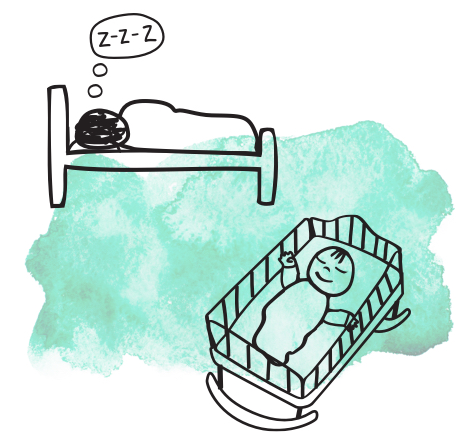Here are some common questions that you may be wondering about. Click on each one to find out more.
Need immediate support?
Please call 8-1-1 for 24/7 general health information and advice. Indigenous people across Canada can also call the toll-free Hope for Wellness Helpline at 1-855-242-3310.
Here are some common questions that you may be wondering about. Click on each one to find out more.
Download PDF:
English ↓, Arabic ↓, Punjabi ↓,
Chinese (Simplified) ↓, Chinese (Traditional) ↓
Did you know that any amount of alcohol during pregnancy and breastfeeding or chestfeeding can affect your baby?
Drinking alcohol while pregnant can:
The good news is that every little bit you can cut down on drinking can improve your baby’s health.
Have you considered cutting down on how much you drink? We know cutting down or stopping drinking can be hard. Here are some tips that can help:
You, your partner, and everyone in your support circle can play a role in helping you have a healthier pregnancy. Check out these tips for eating well, taking care of yourself and having other healthy habits during pregnancy.
Any amount of alcohol can lower the chances of getting pregnant
For a better chance of getting pregnant, cut back on drinking or stop altogether, if that’s an option for you:
If you are drinking before you are pregnant:
DID YOU KNOW?
You can support the baby’s growth and health by avoiding alcohol or cutting down as much as possible while the baby is dependent on your milk.
If you drink occasionally, here are some tips for lowering the risk to the baby:
Learn more about using substances and human milk:
For the baby’s safety, don’t share a bed after drinking alcohol

Learn more about safer sleeping:
Download image:
English ↓, Arabic ↓, Punjabi ↓,
Chinese (Simplified) ↓, Chinese (Traditional) ↓
Check out this resource that has plenty of tips and suggestions for how you can encourage and support a pregnant person to cut back on their drinking.

Be the Circle of Support
When we support our loved ones to avoid alcohol during pregnancy and breastfeeding or chestfeeding, we also support the baby’s health.
1. SUPPORT THEIR DECISION TO NOT DRINK
“I’m so proud of you for being on a health kick!”
“Oh cool, what can I get you instead?”
2. JOIN THEM IN ACTIVITIES THAT DON’T INVOLVE ALCOHOL
Do a hobby such as a sport or art
Hang out at a coffee shop
Watch a movie or tv
Go with them to community events
3. HELP THEM GET A BALANCE OF REST, EXERCISE, AND GOOD NUTRITION
Cook or clean for them
Phone them regularly to go for walks
Buy them groceries
Run errands for them while they rest
Help watch their other children/babysitting, or pet sitting
4. HELP THEM FIND OTHER WAYS TO RELAX
Recommend books to read
Go for a walk together
Craft, hang out, go to a movie or concert together
5. OFFER NON-ALCOHOLIC DRINKS
Juice, soda or tonic, or mocktails
Garnish non-alcoholic drinks with candies/fruits/flowers
6. AVOID DRINKING AROUND THEM
In solidarity, choose to not drink when you’re together
Partners could choose to not drink during the pregnancy
7. HELP WITH HOUSE CHORES OR GETTING TO APPOINTMENTS
Offer them a ride
Help with dishes or laundry
8. CELEBRATE THEIR EFFORTS AND SUCCESSES
Write them a personal note
Give them a pamper basket for some “me time”
Plan a get together
Ask them if you can donate to an organization they support in their name